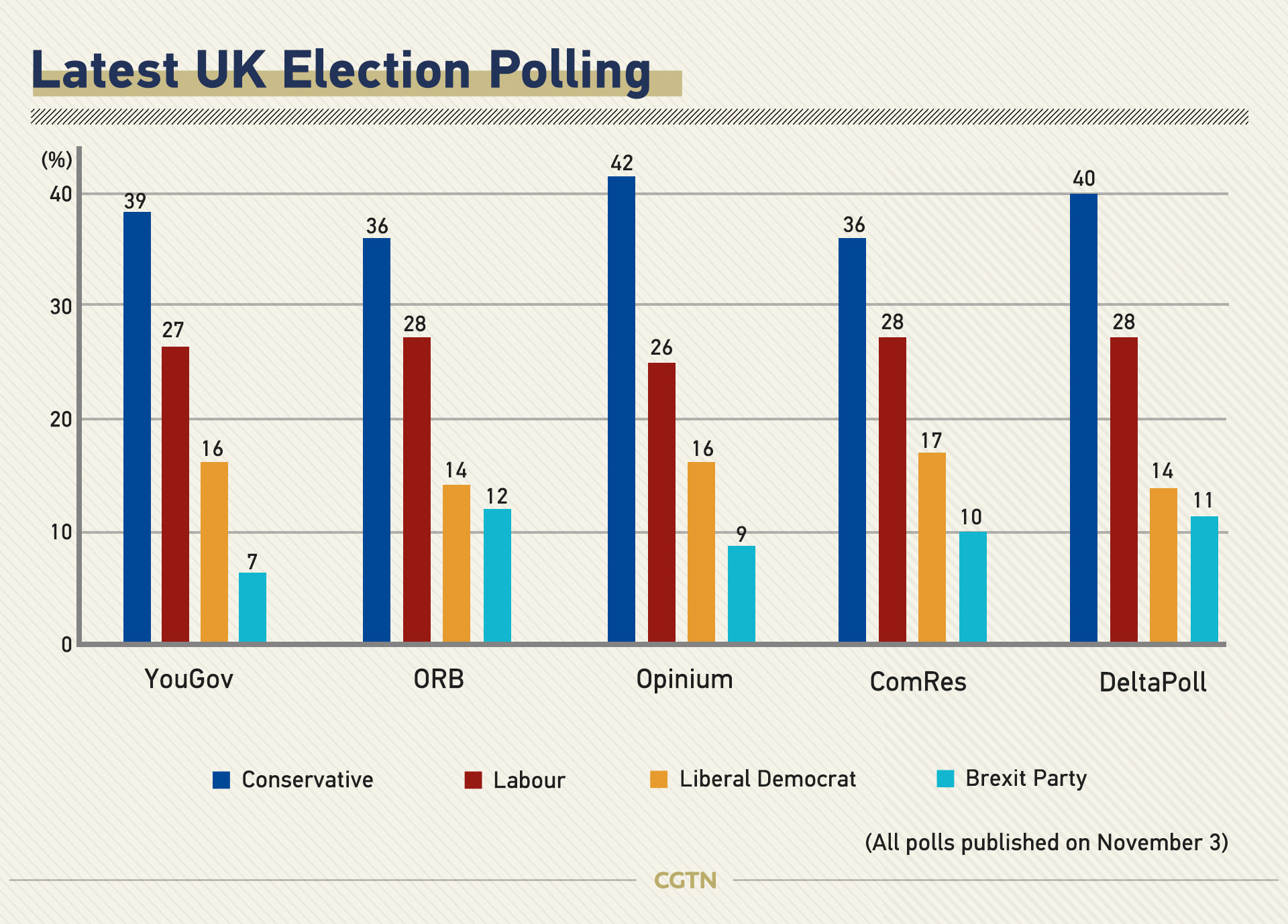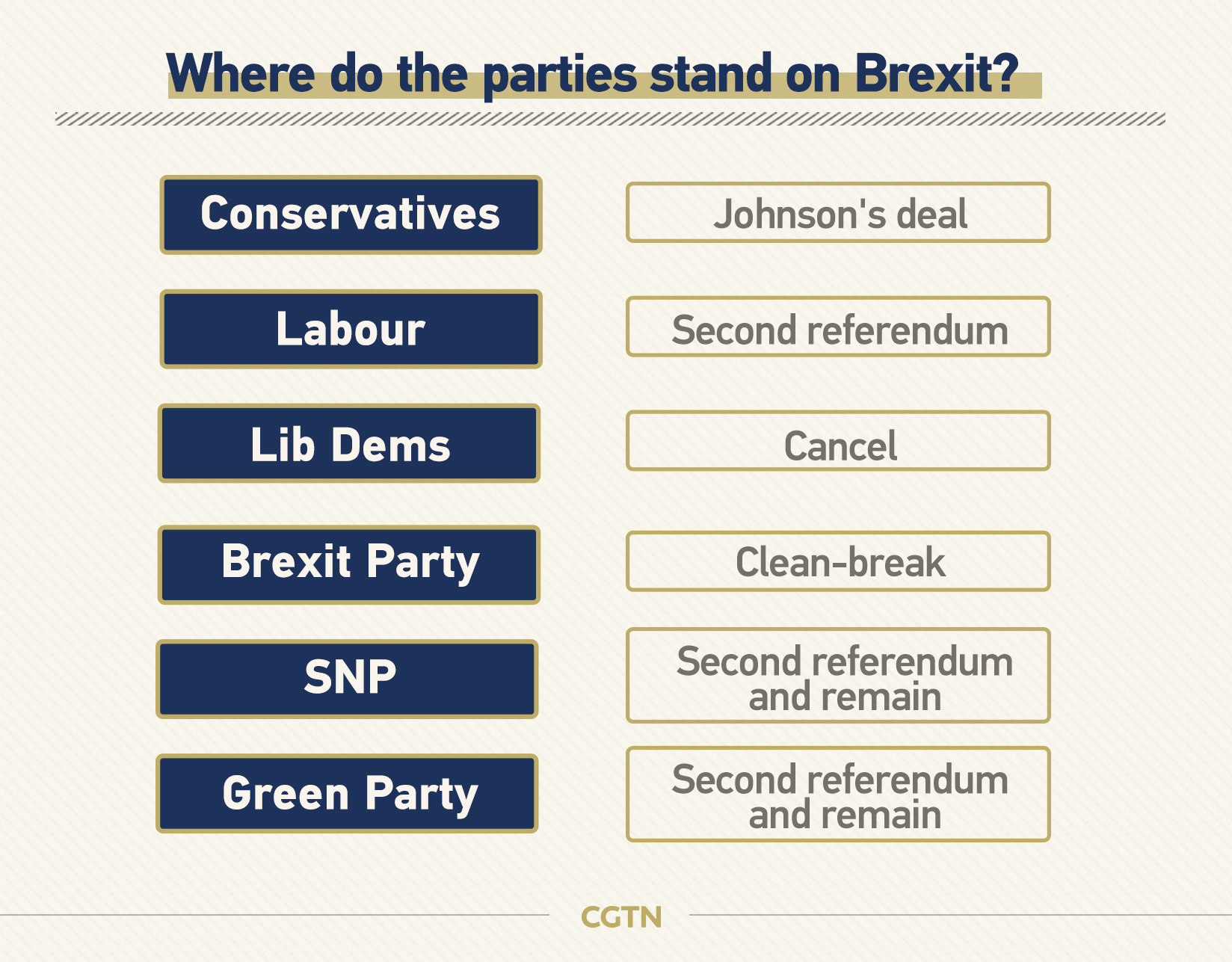New polling commissioned by Britain's Sunday newspapers suggests the Conservatives have a strong national lead ahead of the December 12 election, but also points to growing support for the opposition Labour Party and high volatility in the electorate.
What do the polls show?
Five opinion polls published on Sunday suggest the Conservatives hold a national lead of between eight and 16 percentage points over Labour ahead of the official start of campaigning.

Britain's first-past-the post system essentially involves 650 mini-elections, so while national polls are a useful indicator of trends they do not give an accurate reflection of a final seat count in the House of Commons. An eventual victory of over 10 points nationally is likely to translate into a comfortable Conservative majority, however.
While the lead across all the polls is good news for Johnson, an uptick in support for Jeremy Corbyn's Labour – up three points with YouGov – will be a concern.
The opposition party rallied from a huge polling deficit at the start of the 2017 election to finish narrowly behind the Conservatives, who are targeting Brexit-friendly Labour seats in the north of England.
Will the Leave vote split?
Johnson drew a backlash from Brexit Party leader Nigel Farage on Saturday after he rejected calls to drop his Brexit deal and embrace a clean break from the European Union.
The prime minister, who failed to deliver a "do or die" Brexit on October 31, is expected to abandon the threat of a no-deal departure from the Conservative manifesto.

Farage, whose party has slipped in the latest polls, argued in a tweet that Johnson's deal with the EU "is simply not Brexit and does not get Brexit done."
He has set a November 14 deadline for Johnson to abandon his deal, warning his party will stand candidates across Britain if the prime minister does not join the Brexit Party in a "Leave alliance."
The Conservatives have rejected the idea of a formal pact, but while the Brexit Party is unlikely to win seats it could split the Leave vote and draw support away from Johnson's party – informal agreements on a local level are possible.
How about a Remain alliance?
An alliance between smaller parties in favor of remaining in the European Union is thought to be close, with The Sunday Times reporting that the Liberal Democrats, the Greens and Plaid Cymru are ready to do deals in up to 60 seats.
The agreement, expected to be formally announced on Tuesday, would see the weaker two parties stand aside for the strongest in multiple constituencies.
It remains unlikely that Labour, the biggest opposition party, would be prepared to engage in any pact.
What's next?
The UK parliament will dissolve on Tuesday evening and the election campaign will formally begin on Wednesday, the day the Conservatives will officially launch their campaign.
The first television debate, a head-to head between Johnson and Corbyn, will take place on November 19. The decision to leave Liberal Democrat leader Jo Swinson and Farage out of the debate has sparked controversy – their parties finished first and second in May's European Parliament polls, and are expected to have a significant impact in the election.